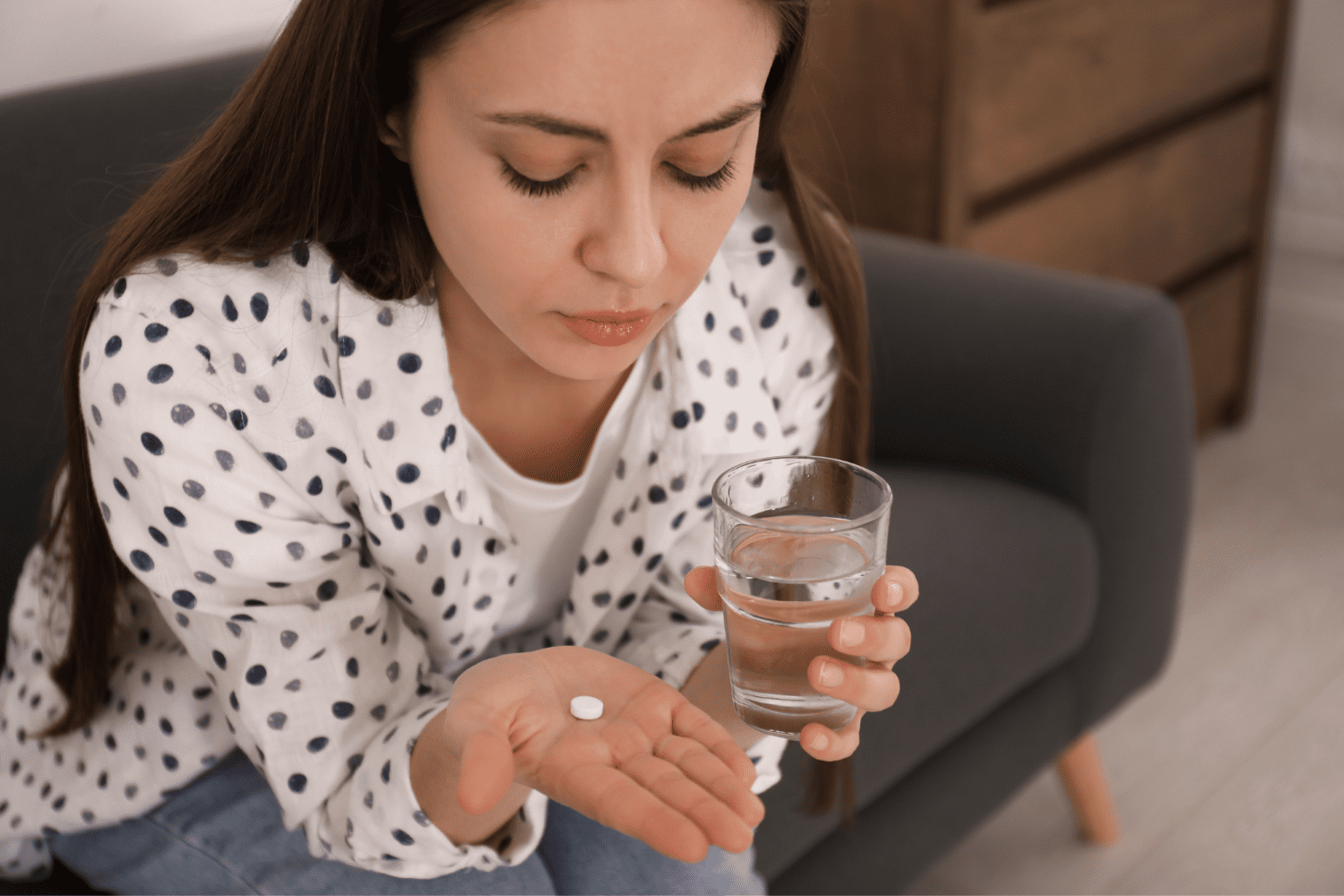When you search “Plan B vs. the abortion pill,” you get a lot of results. This information can be helpful, but it’s also overwhelming.
The best way to understand which medication is the right option is to ask yourself: Am I trying to prevent pregnancy or do I want to end my pregnancy?
This blog will explain the differences between the morning-after pill and the abortion pill. You’ll get answers to FAQs, including info about potential risks and how each medication works.

Are the morning-after pill and the abortion pill the same thing?
Both the morning-after pill and the abortion pill affect reproduction, but they are not the same medications.
The morning-after pill, also known by the brand name Plan B, is a contraceptive. It may prevent pregnancy, but it won’t end an existing pregnancy.
The abortion pill is an abortifacient. It will end a pregnancy and expel the embryo from the uterus, but it won’t prevent pregnancy.
How does Plan B work?
The morning-after pill prevents pregnancy in several ways, including:
- Preventing ovulation
- Delaying ovulation
- Preventing fertilization
This medication may keep a fertilized egg from implanting in the uterus as well. Research about this isn’t clear, so it’s best to take the morning-after pill as soon as possible after sex.
This contraceptive is most effective if taken within 72 hours of unprotected sex. It may work up to 120 hours after sex as well.
As mentioned, you take Plan B to prevent pregnancy. It won’t work if you are already pregnant. If you have pregnancy symptoms or think you might be pregnant, make an appointment for a free confirmation pregnancy test and ultrasound.
How does the abortion pill (RU-486) work?
The abortion pill uses two different medications to end your pregnancy.
This two-pill regimen is sometimes called a medication abortion or chemical abortion. The FDA has only approved it for use through the first 10 weeks of pregnancy.
The first medication, mifepristone (RU-486), blocks progesterone. This hormone helps nourish a healthy pregnancy. Without it, the embryo’s umbilical cord will detach from the uterus. You will also start to shed your uterine lining.
If you’ve only taken mifepristone, you may be able to reverse the medication abortion by taking progesterone prescribed by a doctor. If you have only taken the first pill and want to stop your abortion, please contact the Abortion Pill Reversal Hotline at 877-558-0333.

The second pill, misoprostol, causes the uterus to cramp. This medication tells your body to push the uterine lining, embryo, and any other pregnancy tissue out of your uterus. You will experience heavy bleeding, feel strong cramps, and may pass clots as big as a lemon. Bleeding and other symptoms may continue for several weeks.
Taken together, the two medications that make up the abortion pill regimen will end your pregnancy. They won’t, however, prevent pregnancy.
Plan B vs the abortion pill: FAQs
Will the morning-after pill end my pregnancy?
No, the morning-after pill will not terminate your pregnancy. Plan B is a contraceptive that keeps you from getting pregnant, not an abortifacient.
I’m 12 weeks pregnant. Can I take the abortion pill?
No, according to the FDA, it’s only safe to take the abortion pill through the first 10 weeks of pregnancy. You face a higher risk of a failed abortion and life-threatening complications if you are farther along.
Is the morning-after pill dangerous?
There are some side effects, but it isn’t known to have long-term risks if used correctly.
That said, Plan B shouldn’t be taken like birth control. It is meant for infrequent, emergency use. If you need a birth control option that you can use regularly, contact your doctor.

Is the abortion pill dangerous?
Unlike the morning-after pill, the abortion pill does have serious risks.
If the embryo implanted outside of your uterus (called an ectopic pregnancy) and you take the abortion pill, you are at risk of internal bleeding, infection, and even death. It’s crucial to get an ultrasound first to make sure the embryo is in your uterus.
If you are farther along than you think you are, you may have serious abortion pill complications. This is another reason to get an ultrasound before getting a chemical abortion. The sonographer will measure your pregnancy and tell you how far along you are to the day. You can then avoid unnecessary complications and risks.
Unusually heavy bleeding is also a common side effect. You may need to visit the emergency room to monitor and treat your bleeding after a chemical abortion.
Finally, an incomplete abortion is always a risk. If you have dangerously heavy bleeding, a fever, or other signs of an infection after taking the abortion pill, you may still have pregnancy tissue in your uterus. Call 911 or visit the emergency room immediately for treatment.
Get answers at Thrive Orlando
Confused by the conflicting information you’re finding about the morning-after pill and abortion pill online? At Thrive Orlando, you can talk directly to a medical professional about your questions and concerns.
You deserve to have all the information you need to feel confident about your decision. Make an appointment today to find the answers you need.

